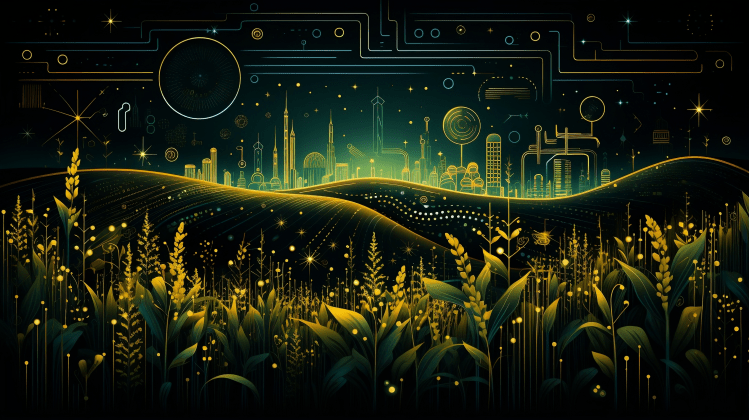Whether or not you subscribe to the “butterfly effect” — coined by meteorologist Edward Lorenz in 1961, the theorem states that a butterfly flapping its wings in Brazil could, through a chain of various interlinked meteorological events, ultimately cause a tornado in Texas — there’s no denying that events far from us on the other side of the world have an impact on our lives. This is especially true in the agricultural supply chain, where companies that sell coffee in my home country, the United States, typically import the beans from far-flung locations with climes better suited for growing them, such as countries in Central America, South America, and Subsaharan Africa.
Supply Chain Challenges
But consumer packaged good companies (CPGs) and food processors have until now had to rely on a combination of different methods for keeping track of their supply chains, including waiting on direct word from the suppliers themselves, to using software to monitor weather and news events in the countries their products originate from, and keeping track of the supply chain in non-specialized software such as PowerPoint and Excel.
Introducing Cersi: The World’s First Supply Chain AI Analyst
A new startup thinks it has developed a better way: today, Helios, co-founded by a former at Boston Consulting Group (BCG) and a former award-winning machine learning engineer at Google, is introducing Cersi, which it bills as “the world’s first supply chain AI analyst.” Cersi is a conversational AI chatbot, similar to ChatGPT or Claude 2, but specialized for the agricultural supply chain. Users at CPGs can feed Cersi their supplier information and location, and it will automatically surf the web and track relevant updates for that location’s weather forecasts, natural disasters, the effects of climate change, and other news events that could impact the supply chain.
“We started it because we wanted to make sure that preventable food supply shortages never happen again,” said Francisco Martin-Rayo, Helios CEO and the co-founder who was a former principal at BCG, in a video call interview with VentureBeat.
Enhancing Supply Chain Visibility
Helios’s innovative platform, Cersi, provides a realtime, highly-customized view of the supply chain. By ingesting “billions of climate, economic, and political signals,” Helios ensures that users receive up-to-date information on their suppliers and potential risks. Cersi crawls 60,000 news sources daily to keep users informed and relevant.
“If you’ve got 150,000 suppliers you import from, we can give you a snapshot in realtime of which ones are at the highest risk of disruption,” Martin-Rayo explained.
Improving Decision-Making with Realtime Data
In a demo showcased during a video call interview, Martin-Rayo revealed the supplier dashboard available to Helios’s beta customers. This dashboard allows customers to input their supplier name, the commodity being supplied, and the location of origin. Using Helios’s advanced algorithms, Cersi evaluates the risk of disruption from natural or human-driven causes, providing a score and detailed explanation. The platform also includes a world map that visually represents the customer’s global supply chain and provides additional information on specific suppliers and relevant events.
“The reason this is so special is that historically…these companies would have existing contracts with consulting firms, where they would pay tens of thousands to hundreds of thousands for reports on this information, and it might take a couple of days or weeks. Now, you’re able to get it in seconds,” Martin-Rayo asserted.
Building Agriculture Expertise
Coming from the white-collar worlds of business and software, Martin-Rayo and Canlilar had to acquire knowledge about agriculture when developing Helios and Cersi. They built proprietary machine learning models to understand growing seasons and the impact of factors like humidity and temperature on agricultural crops. Furthermore, partnerships with industry leaders have helped shape Helios’s product and data analysis.
Secure and Reliable Supply Chain
While improving supply chain resiliency and preventing food supply shortages are key goals for Helios, Martin-Rayo acknowledges that commodities traders can also benefit from their technology. However, he believes that a proactive approach and collaboration with suppliers can help mitigate risks and ensure a more secure food supply chain.
Target Market
As of now, Helios has primarily garnered interest from food processors and CPGs, with a significant majority of their early customers coming from these industries.










